The most popular theory about the origin of April Fool’s Day involves the French calendar reform of the sixteenth century.
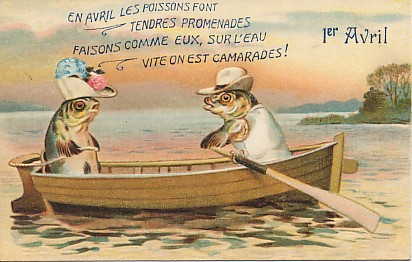
The theory goes like this: In 1564 France reformed its calendar, moving the start of the year from the end of March to January 1. Those who failed to keep up with the change, who stubbornly clung to the old calendar system and continued to celebrate the New Year during the week that fell between March 25th and April 1st, had jokes played on them. Pranksters would surreptitiously stick paper fish to their backs. The victims of this prank were thus called Poisson d’Avril, or April Fish—which, to this day, remains the French term for April Fools—and so the tradition was born.
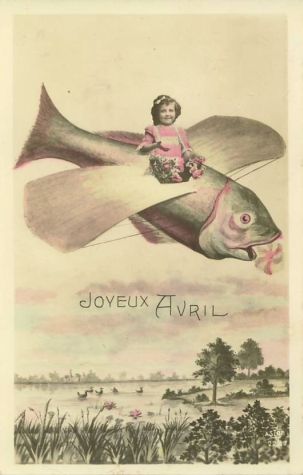
There is another theory that traces the origin of the custom back to the abundance of fish to be found in French streams and rivers during early April when the young fish had just hatched. These young fish were easy to fool with a hook and lure. Therefore, the French called them "Poisson d'Avril" or "April Fish." It became customary (according to this theory of its origin) to fool people on April 1st as a way of celebrating the abundance of foolish fish.

It's interesting to point out that Napoleon earned the Poisson d'Avril monicker when he married Marie-Louise of Austria on April 1, 1810.
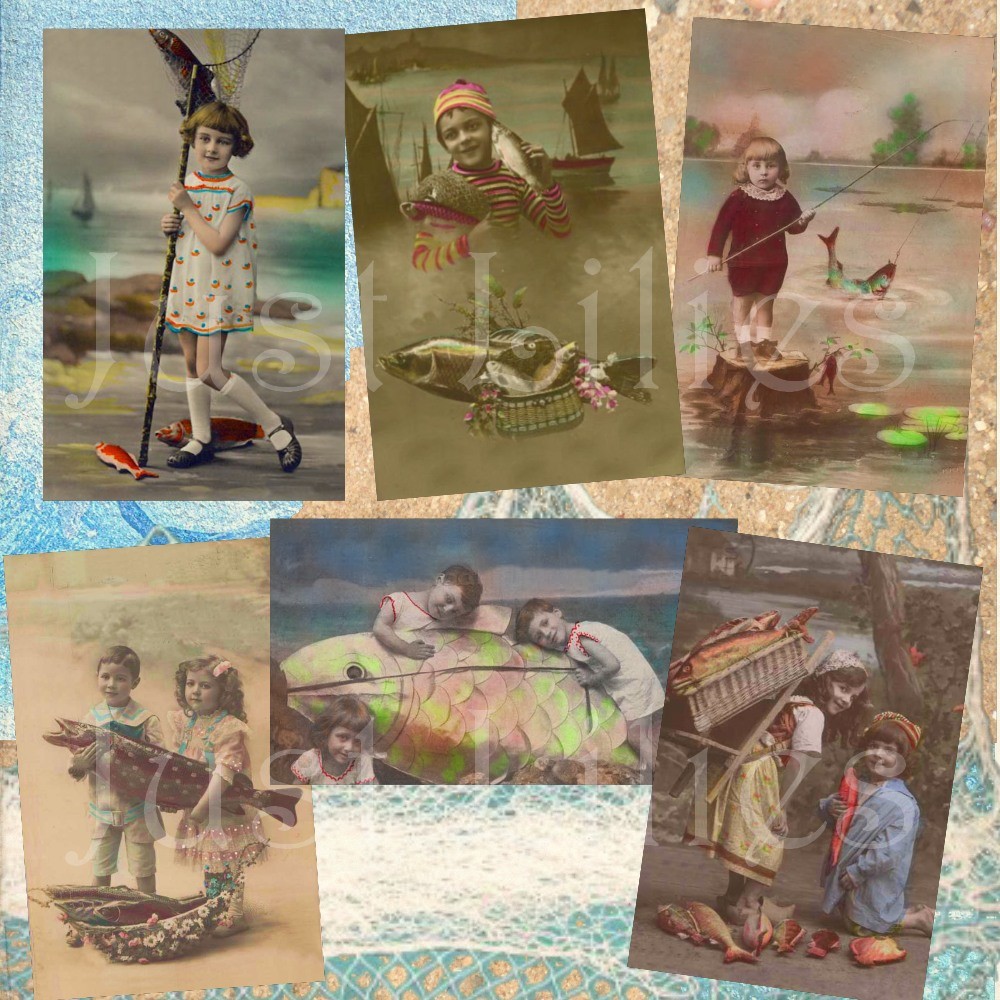
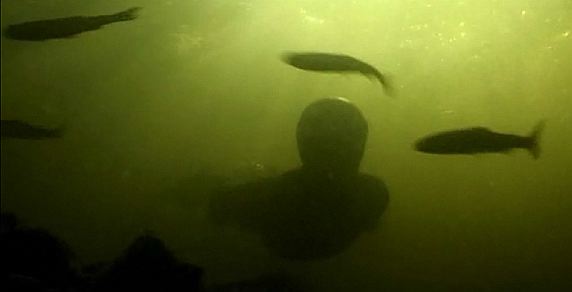
Some homegrown vintage April Fool's imagery.
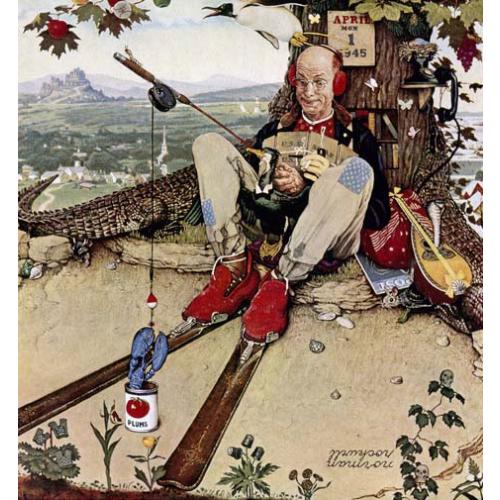
Norman Rockwell's Saturday Evening Post cover from March 31st 1945.